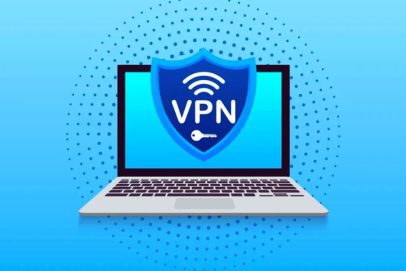The 5 Things You Should Know Before Using A Free VPN

The virtual private network commonly referred to as a VPN is an essential tool to safeguard your privacy while on the internet, particularly when connected from public areas such as the lobby of a hotel cafe, library or at the airport.
If you sign up with the VPN provider, you’ll first sign up for that service before connecting to the Internet. If you do this the government, businesses and hackers aren’t able to know your IP address while you’re surfing the web. Keep reading to learn more!
The five things you need to know before using a free VPN.
If you’re considering using a free VPN it’s important to know about any issues that may be connected to free services, such as those mentioned above.
The VPN provider may be infected by malware
In the study of 2016 CSIRO study, out of the top 10 VPNs that are that were most likely to be infected with malware, six of them were free.
The majority of malware was attributed to advertising. This shouldn’t be surprising since free VPNs frequently rely on ads to earn profits. VPNs that charge fees are less likely to depend on ads to earn their earnings.
VPNs may use embedded tracking to fulfil a variety of functions.
The CSIRO study revealed that only 28 per cent of the free VPN providers didn’t employ third-party trackers embedded in their software for tracking, analytics or even marketing purposes.
Based on the research the study found that 10 per cent of the free services had a single tracker, a further 10 per cent had two trackers, while 25 per cent relied on three trackers. The study revealed that 8 percent of them had four trackers while only 18 percent of all free VPNs included third-party trackers.
VPNs are often unsuccessful in blocking content
A lot of consumers use VPNs as a way to gain access to online content they might not be able to access in some areas of the world. A prime example? Netflix content.
If you reside within the United States, for instance, you may not have access to the same Netflix shows or movies that you can access from Netflix within the United Kingdom. If you initially connect to the Internet using a VPN provider that has an IP address that is located within the United Kingdom, you might be able to access restricted Netflix programs.
The issue? The issue is that free VPNs typically don’t allow unblocking of Netflix content. You might want to think about the more robust options offered by a premium VPN service that might let you access this content. Remember, it’s crucial to look at local laws and the conditions of your agreement with the provider of content.
VPNs can cause a slowdown in your connection
Your internet connection may be slow when you sign in to the internet via an unpaid VPN service.
Some free services also offer premium VPN security, which charges one-time or yearly subscription costs. These services could slow your speed on purpose to entice users to join their paid versions.
VPNs can permit governments to gather user data
A study conducted by VPNpro discovered that the top 97 VPNs are run by 23 companies owned by their parent company, and many of them are located in countries that have inadequate privacy laws.
What’s troubling about this finding is the fact that China has very strict VPN restrictions. The VPN companies could be endorsed by the government where they are located to collect data from their customers.
